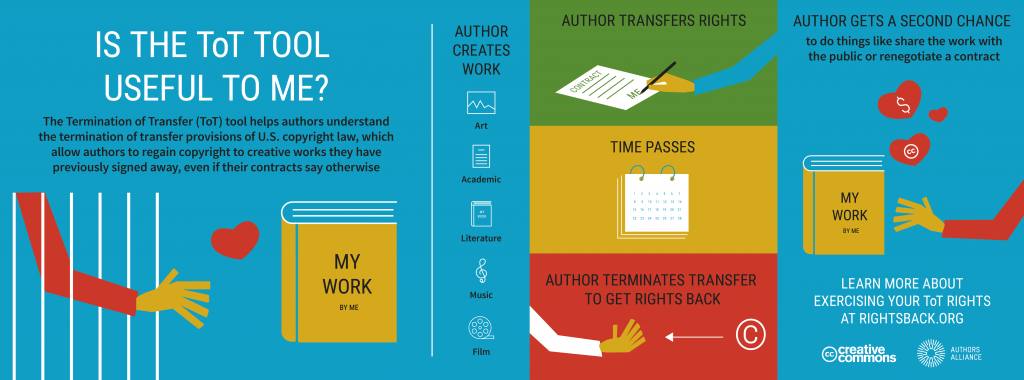Congratulations! Your latest research has been accepted for publication in a journal, but before you sign the publisher's Copyright Transfer Agreement (CTA), are you retaining the necessary rights under copyright to use your work yourself? Let's make sure.
This guide provides background information and tools necessary to retain the rights you need to reuse your work.
This brief video, produced by the Institute on Scholarly Communication in association with SPARC (Scholarly Publishing and Academic Resources Coalition), explains how researchers can maximize exposure and dissemination for their peer-reviewed article manuscripts.
In this panel discussion, experts on copyright law and scholarly publishing discuss how scholars and researchers can take full advantage of opportunities afforded by digital technology in today's legal environment, and suggest ways to advocate for positive change. The panelists are Heather Joseph, who has been Executive Director of the Scholarly Publishing and Academic Resources Coalition (SPARC); Michael Carroll, Visiting Professor of Law at American University's Washington College of Law and a founding member of the Board of Directors of Creative Commons; and Director of the Columbia University Copyright Advisory Office Kenneth Crews, whose research focuses on copyright issues, particularly as they relate to the needs of scholarship at the university.
Scholarly journals' publishing agreements will typically ask you to transfer your copyrights without compensation and they gain the ability to control how to set the terms and conditions for others to access the work (e.g. subscription prices, online access). For the author, the assumed gain is exposure in a journal.
In the case of scholarly books, there is usually a monetary transaction in the form of a lump sum or royalties dependent on units sold. The publisher often receives the right to control the price for non-open access books and how the book is published.
There are many ways publishing agreements can differ. To learn more, see the University of California: Berkeley Library article on Managing Your Copyright.
Assessing your future intentions before you sign your agreement will better position you to be able both to understand and negotiate the rights or licenses they’ve asked you to confer. Once you figure out what future uses you want to make from your work, you can explore what options you have to preserve the necessary rights. It may not always be possible to successfully negotiate changes to your publisher’s agreement. But it’s often worth trying.
Sometimes. You can get rights back even if you’ve licensed or assigned them away. There are two options: by contract or by statute.

Visit the Authors Alliance article on Returning Authors' Rights to learn more.
If what you want to do is keep copyright for yourself, but license other people to do things with your work beyond fair use, you can choose to apply a “Creative Commons License” to your work. Visit Drexel University Libraries LibGuide on Copyright to learn about the different kinds of licenses and how to obtain them.
The following slideshow by UMass Amherst Libraries outlines ways authors can negotiate their publishing agreements. [PDF]
In addition to credit given for various images, parts of this guide were adapted from work/guides by:
University of California: Berkeley, University of California: San Diego, University of Maryland, UMass Amherst, Valparaiso University
Used with permission or in accordance with Creative Commons Licensing.